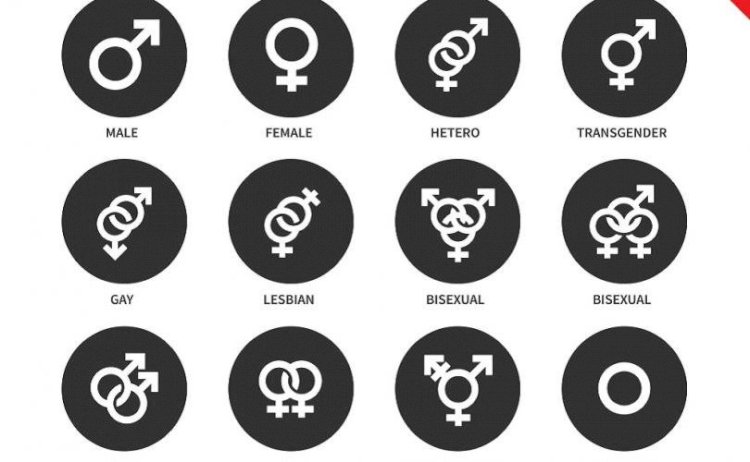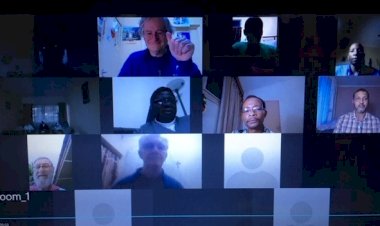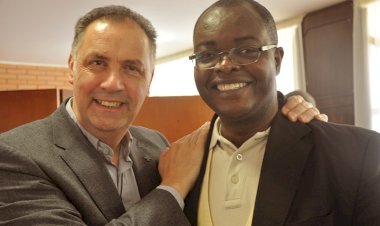Gender Theory is rooted in the Gnostic-Dualism fallacy
Gnostic-dualism divorces the body from the soul.

Gender Theory is rooted in the Gnostic-Dualism fallacy
Towards the end of the second century, St Irenaeus, the bishop of Lyons, wrote a text called Adversus Haereses (Against the Heresies), and the principle heresy that he identified was Gnosticism. One of the major tenets of Gnosticism is that matter is a fallen, inferior form of being, created by a lesser god. Gnostics believed that the soul is trapped in matter, and the whole point of the spiritual life is to acquire the ‘gnosis’ (knowledge) needed to enable the soul to escape from the body.
For Gnosticism, Jesus cannot be God-made-flesh, but was merely a prophet who came with the saving knowledge of how to rise above the material realm. This view of nature is unacceptable to Christianity, which insists emphatically upon the goodness of the material creation. Irenaeus’s writings focused on the “body” and Creation, Incarnation, Resurrection, the nature of the Church, sacraments, redemption, the Eucharist, etc. Irenaeus presented redemption as not the escape of the soul from the body. Instead it is the salvation and perfection of the body, and it all involves bodiliness, materiality.
This is not a bit of trivial ancient intellectual history. The gnostic heresy persisted and reappeared every now and then across the centuries. Every time it ‘trended’, it scorned materiality and set the spirit and the body apart. Descartes, Kant, Hegel, several modern philosophers, and now millions of ordinary people today seem to be attracted to the notion that body and mind are separable, with the superiority of the mind being capable of independence from the physicality of a person.
So those who ‘transition’ from one ‘gender’ to another, justify their claims saying something along these lines: “Deep down, I always knew that I was a woman, but I felt trapped in the body of a man. Therefore, I have the right to change my body to bring it in line with my true identity.”
The mind or the will - the ‘inner self’ - is casually identified as the ‘real me’ while the body is presented as a rival which can be disowned by the ‘authentic self’.
The soul and the body are considered in a master-slave relationship. The former can legitimately dictate and re-make the latter.
This idea is pure Gnosticism, and just as contrary now to Christian philosophy and theology as in the days of Irenaeus. The body can never be considered a prison for the soul, nor dissociated from the spirit. The mind or will is not the ‘true self’ dominating the body. The body is an essential constituent of the true self. Until we realize that the promotion of transitioning is tantamount to embracing the fantasies of Gnosticism, then we haven’t grasped how gender theory is a complete delusion, a total fallacy. So the rise of “transgenderism” and the widespread approval of homosexual ‘pride’ represent a resurgence of the heresy of Gnosticism.
Gnostic-dualism divorces the body from the soul. Our bodies are our first and deepest encounter with the physical or natural world. But Gnostic-dualism basically states:
“I am not my body. I am only my feelings, my thoughts. My body is at best irrelevant and at worst a limiting cage against which I am entitled to rebel.”
Splitting mind from body, psychology from biology, modern Gnostics claim the ability to be whatever they imagine themselves to be. And so the list of genders has grown from the original binary (male/female) to more than 50 variations.
Thirty years ago, if one heard that a certain man had declared that he was a woman trapped in a man’s body, the reaction would likely have been to conclude that the man had some form of mental illness as he was obviously out of touch with reality. Most people would not have taken such a claim seriously, as it was nearly universally agreed that the physical body provided the definitive indication of one’s sex.
Over the past 10 years however, a tipping point was crossed in ‘modern culture’, and the belief in gnostic-dualism reached critical mass. The idea that the body is irrelevant in determining one’s sex has become widespread. To claim that one’s body, that the sex assigned at birth, determines one’s gender, is even considered discriminatory. And one can even be accused of hate-speech or racism for disagreeing that anybody can choose the gender they prefer.
Today, a male who says he is a female trapped in a male body is taken seriously by most people, and is not treated as a mental disorder but diagnosed simply as “gender dysphoria” which can be ‘fixed by transitioning’. If an unenlightened conservative does not play along, and instead says, “No, your body indicates you are actually a male,” the response will be: “My body? What does my body have to do with anything? It is what I think and feel that matters.”
Again, this is Gnostic-dualism in all its deceptive form. From a Christian perspective, it is seen as an almost complete disconnect from the body as revelatory of who and what we are. Gnosticism amounts to a reduction of the human person to merely our soul, or our thoughts and feelings. And while it is true that we are not just our body, we are also not merely our thoughts or feelings.
The glory of the human person is in the merging of two orders of creation: the physical and the spiritual. We are not merely persons with bodies; we are embodied persons. Though we can mentally distinguish soul and body, we cannot do so in reality. Consider the analogy of a candle flame. In our mind, we can distinguish the heat of the flame from its light, but we cannot physically separate the light and the heat. They are so bonded as to be one. It is the same with us. Our body and soul are so together as to be one. The separation of body and soul is the cause and result of death. Until death our physical and spiritual nature remain inseparable.
But advocates of transgenderism will have none of this. Gnostic-dualism is alive and “well” in our times. We must continue to insist that the body matters, that the body reveals our identity, that the body has things to teach us about who we are. It is not a mere container or cage. I am my body along with my soul and both their faculties.
Human love is never a disembodied reality. Love, which is an act of the will, does not float apart from the body, but rather expresses itself through the body and according to the intelligibility of the body. To set the two in disharmony, or to claim that a mere intention or attraction is more significant than a physical gesture, is to fail to understand the inseparable reality of physical and spiritual life.
- Ideas collected by Safcam from Bp Robert Barron (Word on Fire) and
Daniel Mattson - Why I Don’t Call Myself Gay: How I Reclaimed My Sexual Reality and Found Peace. Mattson writes both credibly and articulately. He speaks not only from experience, but from a good command of the philosophical, theological, and anthropological matters at stake.

















